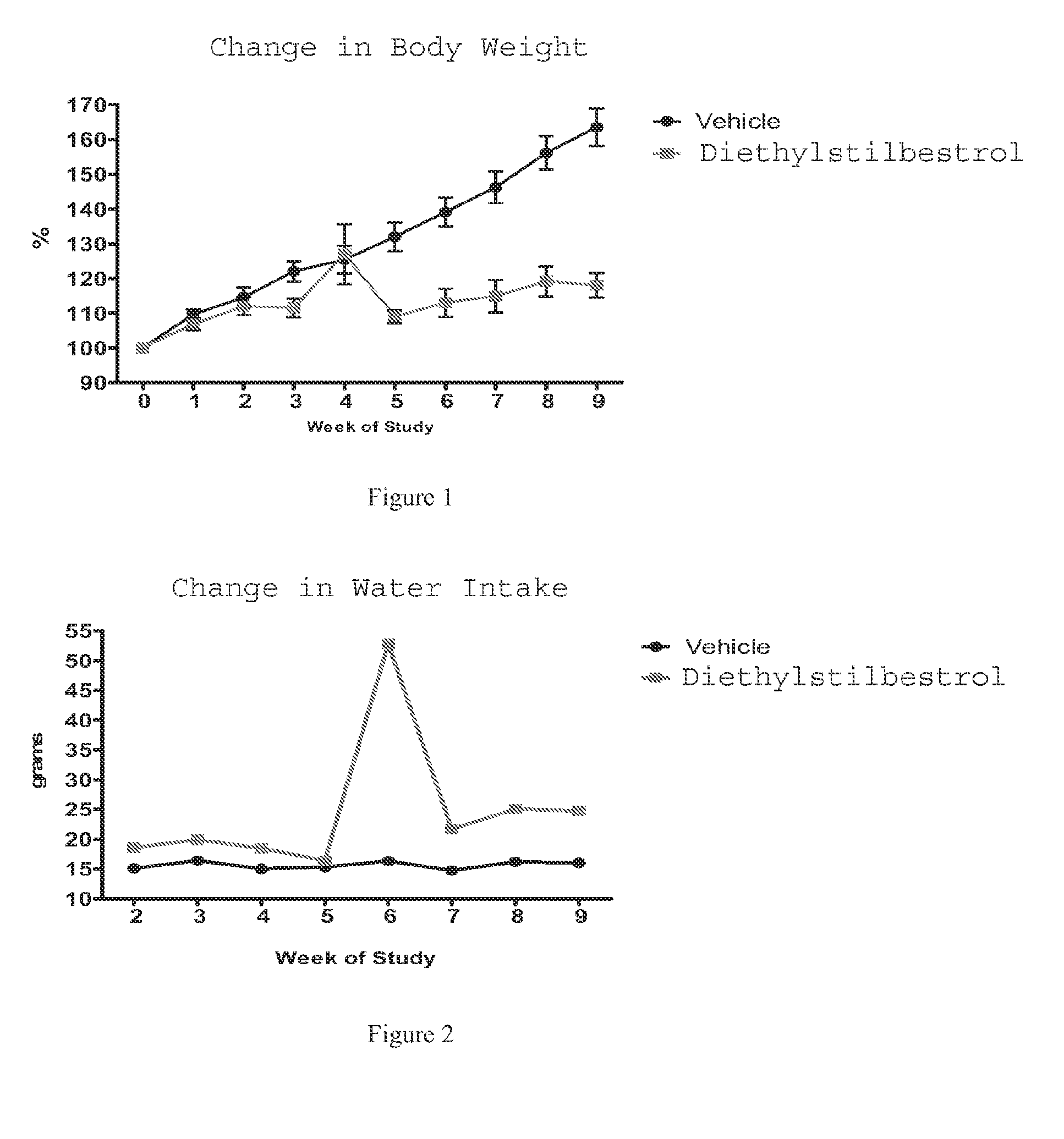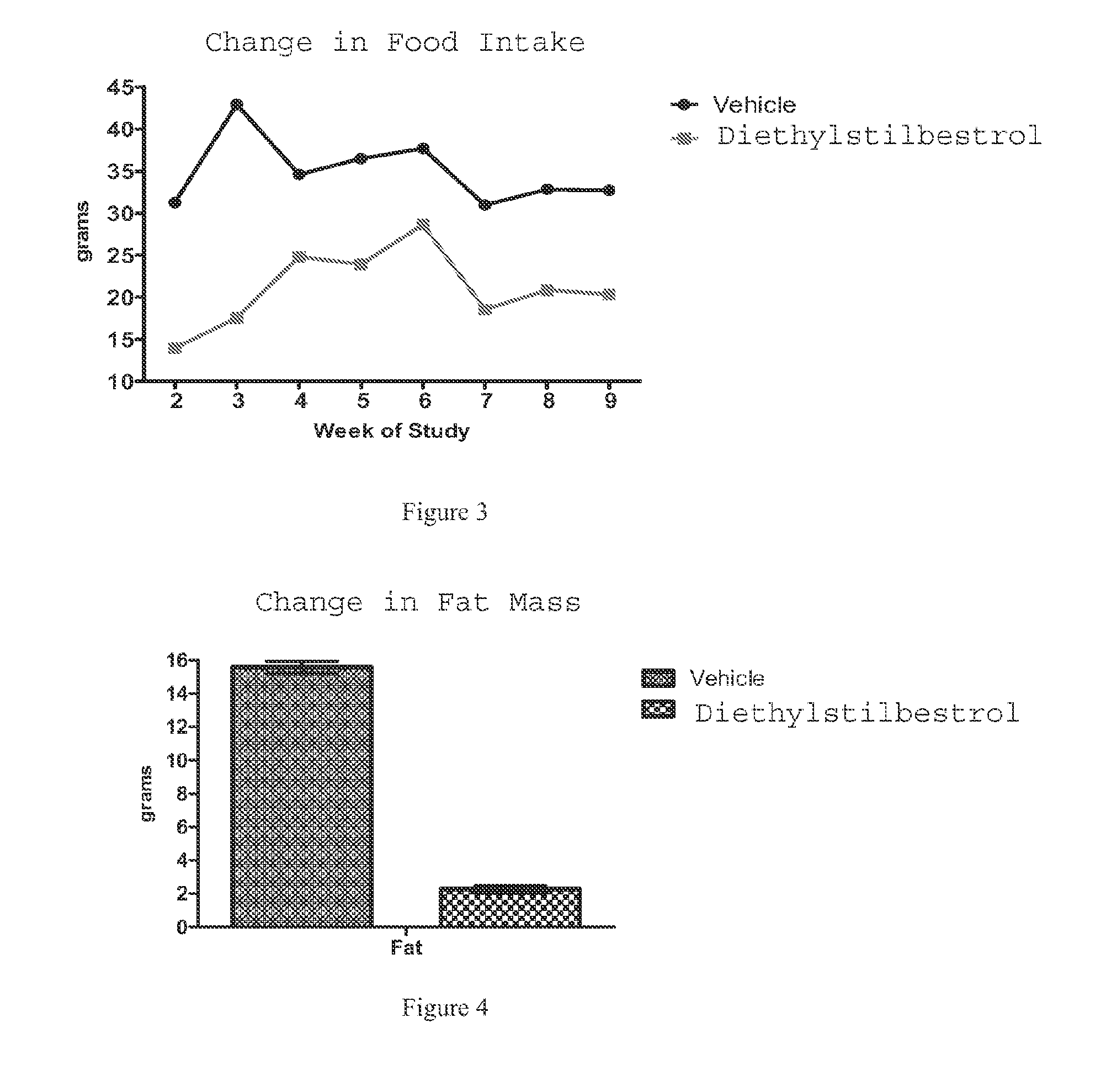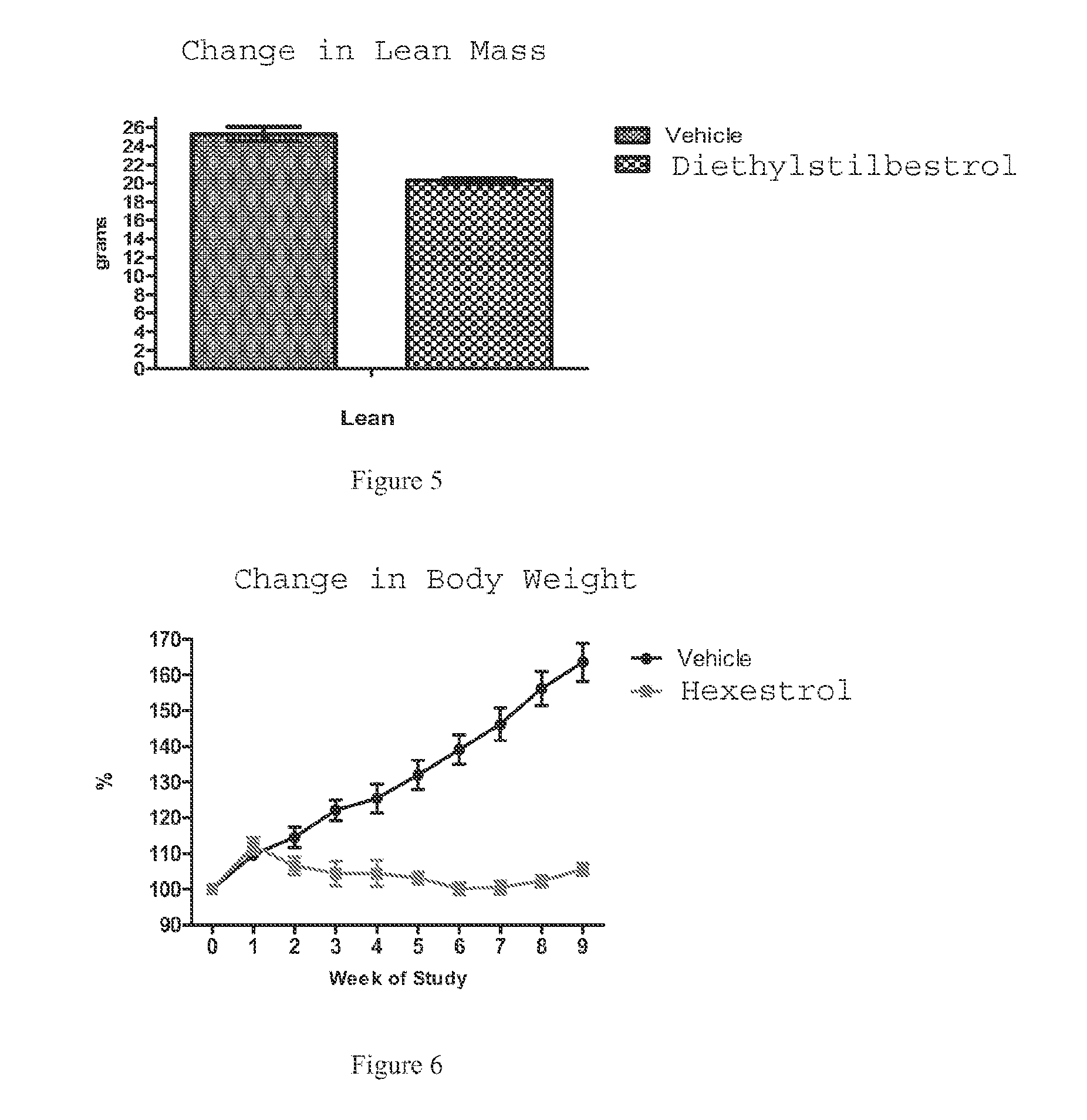Estrogen receptor modulators for reducing body weight
a technology of estrogen receptor and esophageal receptor, which is applied in the field of estrogen receptor modulators for reducing body weight, can solve the problems of obesity becoming a major health problem, weight gain, and significant adverse effects on quality of life and psychological well-being, and achieves significant reduction in food consumption, reducing body weight, and reducing body weight.
- Summary
- Abstract
- Description
- Claims
- Application Information
AI Technical Summary
Benefits of technology
Problems solved by technology
Method used
Image
Examples
example 1
[0113]Male C57BL6 / J mice were tested as follows. The animal room was lighted entirely with artificial fluorescent lighting on controlled 12 hr light / dark cycle (6 a.m. to 6 p.m. light). The normal temperature and relative humidity ranges in the animal rooms were maintained at 22±4° C. and 50±15%, respectively. The animal room was set for 15 air exchanges per hour. Filtered tap water acidified to a pH of 2.5 to 3.0 was provided ad libitum. High fat diet was provided ad libitum.
[0114]After a 1 week acclimation, the mice were grouped into cohorts of 6 mice each. 6 DIO (diet induced obesity) and 6 lean C57BL6 / J mice were used as naïve controls. Each drug was administered via drinking water for 8 weeks. The drug containing drinking water solutions were made fresh weekly. Water intake, food intake, and body weights were recorded weekly.
[0115]This experiment was run in two phases, Phase 1 (prevention of weight gain in lean mice) and Phase 2 (weight loss in obese mice). In the phase 1 exper...
example 2
[0142]B6C3F1 / J female mice (initially ˜5 months old) fed a normal diet were administered diethylstilbestrol, raloxifene, tamoxifen, clomiphene, or hexestrol daily for 1 year. The mice were grouped into cohorts of 15 mice per compound and housed at a density of 5 mice per cage. Compound treatments were provided via drinking water starting at 5 months of age and weight measurements were taken at 5 months, 6 months, 1 year, and 2 years of age. The concentration of each drug in the water is provided below. 335 mice were used as controls. The results for each drug after 1 year are shown in the figure indicated in the parenthetical to the right of the drug name.[0143]Diethylstilbestrol: 1 mg / 500 mL (0.5 mg / kg / day) (FIG. 44)[0144]Hexestrol: 2 mg / 500 mL (1 mg / kg / day) (FIG. 45)[0145]Raloxifene: 10 mg / 500 mL (5 mg / kg / day) (FIG. 46)[0146]Tamoxifen: 2 mg / 500 mL (1 mg / kg / day) (FIG. 47)[0147]Clomiphene: 5 mg / 500 mL (2.5 mg / kg / day) (FIG. 48)[0148]Clomiphene: 1 mg / 500 mL (0.5 mg / kg / day) (FIG. 49)[0...
example 3
[0155]An 8 week long weight loss experiment was performed on obese 18 week old male C57BL6 / J mice having been on a high fat diet for approximately 12 weeks. The estrogen modulating compound treatment groups (hexestrol, clomiphene, raloxifene, and tamoxifen) were either provided in drinking water or feed. Obese mice were allocated into cohorts of 6 mice per compound per treatment type and housed at a density of 1 mouse per cage. Water treatment group mice were placed on a high fat diet ad libitum with compound provided via drinking water. Each feed treatment group received a specially formulated high fat diet containing their corresponding compound ad libitum and normal drinking water. Weight measurements of each mouse were taken twice per week over 8 weeks. Food intake per mouse per day was also recorded.
[0156]At the end of 8 weeks mice underwent a body tissue composition analysis by Echo MRI (NMR), an intraperitoneal glucose tolerance test (IPGTT), and an oral glucose tolerance tes...
PUM
| Property | Measurement | Unit |
|---|---|---|
| temperature | aaaaa | aaaaa |
| pH | aaaaa | aaaaa |
| body weight | aaaaa | aaaaa |
Abstract
Description
Claims
Application Information
 Login to View More
Login to View More - R&D
- Intellectual Property
- Life Sciences
- Materials
- Tech Scout
- Unparalleled Data Quality
- Higher Quality Content
- 60% Fewer Hallucinations
Browse by: Latest US Patents, China's latest patents, Technical Efficacy Thesaurus, Application Domain, Technology Topic, Popular Technical Reports.
© 2025 PatSnap. All rights reserved.Legal|Privacy policy|Modern Slavery Act Transparency Statement|Sitemap|About US| Contact US: help@patsnap.com



